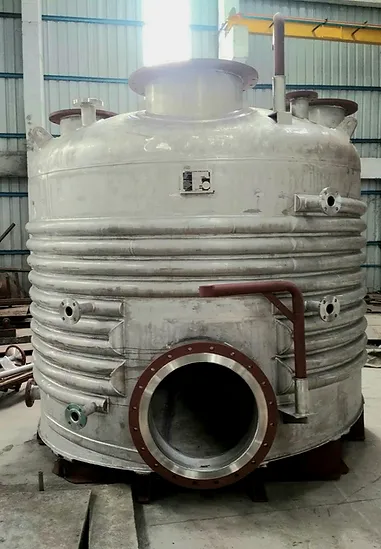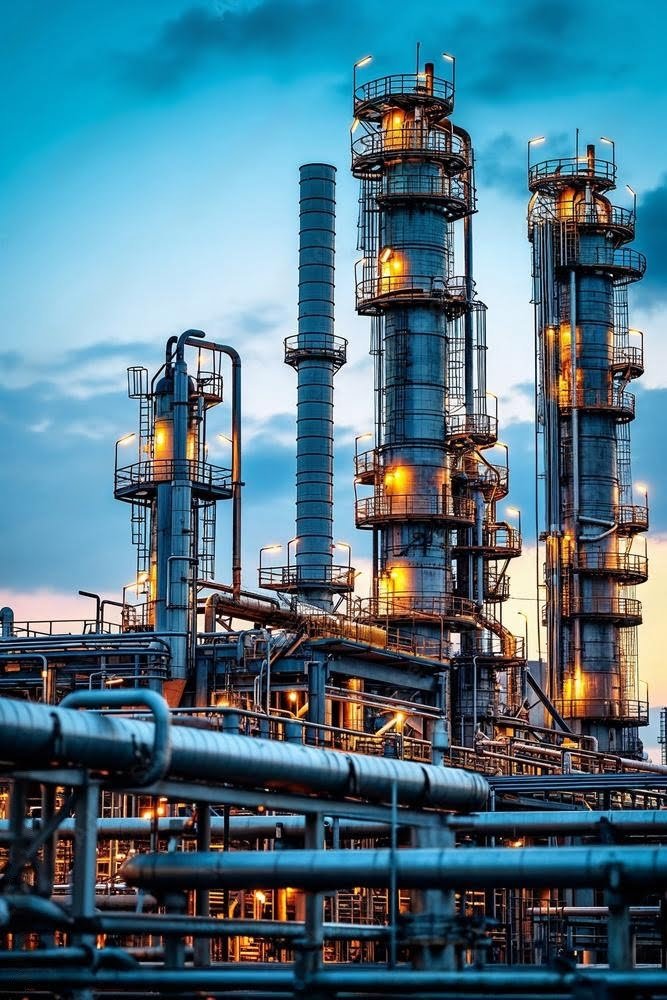Safety and Maintenance of Pressure Vessels in Industrial Settings
Pressure vessels play a crucial role in various industrial settings, ensuring the safe containment of liquids and gases under high pressure. However, without proper safety practices and regular maintenance, these vessels can pose significant risks to both workers and the environment. In this article, we will highlight essential safety practices and maintenance tips for industrial pressure vessels, including a comprehensive inspection checklist and guidelines for ensuring their safe operation.

Importance of Safety Practices
Ensuring the safety of pressure vessels is of utmost importance in industrial settings. Failure to adhere to proper safety practices can result in catastrophic accidents, leading to injuries, property damage, and even loss of life. By implementing the following safety measures, you can minimize the risks associated with pressure vessels:
Regular Inspections: Conducting routine inspections is vital to identify any potential issues or defects in pressure vessels. These inspections should be performed by qualified professionals who can assess the vessel’s condition and detect any signs of corrosion, leaks, or structural weaknesses.
Pressure Relief Devices: Installing pressure relief devices, such as safety valves, is crucial to prevent overpressure situations. These devices automatically release excess pressure, safeguarding the vessel from potential explosions or ruptures.
Proper Ventilation: Adequate ventilation is essential to prevent the accumulation of hazardous gases or vapors within the vessel. Proper ventilation systems should be in place to ensure a safe working environment and minimize the risk of fire or explosion.
Training and Education: Providing comprehensive training to employees who work with pressure vessels is essential. They should be educated on the potential hazards, safety protocols, and emergency procedures to follow in case of an incident. Regular refresher courses should be conducted to keep employees updated on the latest safety practices.
Maintenance Tips for Pressure Vessels
Regular maintenance is crucial to ensure the longevity and safe operation of pressure vessels. By following these maintenance tips, you can minimize the risk of failures and extend the lifespan of your industrial pressure vessels:
Cleaning and Corrosion Prevention: Regularly clean the vessel’s interior and exterior surfaces to remove any debris or contaminants. Implement corrosion prevention measures, such as protective coatings or cathodic protection, to safeguard against corrosion, which can weaken the vessel’s structure.
Leak Detection: Implement a robust leak detection program to identify any leaks promptly. Utilize advanced techniques such as ultrasonic testing or dye penetrant inspection to detect even the smallest leaks that may not be visible to the naked eye.
Regular Testing and Calibration: Periodically test and calibrate pressure relief devices, pressure gauges, and other safety equipment to ensure their accuracy and reliability. This helps maintain the vessel’s pressure within safe limits and prevents potential failures.
Documentation and Record-Keeping: Maintain comprehensive records of all inspections, maintenance activities, repairs, and tests conducted on the pressure vessel. This documentation serves as a valuable reference and aids in tracking the vessel’s history, identifying recurring issues, and ensuring compliance with regulatory requirements.
Pressure Vessel Inspection Checklist
To ensure a thorough inspection of pressure vessels, refer to the following checklist:
Visual inspection of the vessel’s exterior and interior surfaces for signs of corrosion, cracks, or deformations.
Examination of welds and joints for any defects or discontinuities.
Verification of pressure relief devices, ensuring they are properly installed, functional, and set at the correct pressure.
Inspection of pressure gauges and other instrumentation for accuracy and proper functioning.
Examination of piping connections and valves for leaks or signs of wear.
Assessment of insulation and protective coatings for damage or deterioration.
Review of documentation, including previous inspection reports, maintenance records, and compliance certificates.
By diligently following this checklist and addressing any identified issues promptly, you can ensure the safe and reliable operation of your pressure vessels.
In conclusion, the safety and maintenance of pressure vessels in industrial settings should never be overlooked. By implementing essential safety practices, conducting regular inspections, and adhering to proper maintenance procedures, you can mitigate the risks associated with pressure vessels and ensure the safety of your workforce. Remember, a proactive approach to safety and maintenance is key to preventing accidents and maintaining the integrity of your industrial pressure vessels.
Learn More
For more information on our sustainable practices and equipment offerings, visit our pages on Reactors and Autoclaves, Process Vessel and Tanks, Hydrogenators, Pilot Plant Systems, Distillation Columns, Heat Exchangers and Condensers, and Large Size Pipe and Pipe Fittings.
By integrating these practices, we ensure that our manufacturing processes are eco-friendly and energy-efficient, aligning with our commitment to sustainability and environmental responsibility. Discover how Special Metal Industries is leading the way in sustainable chemical equipment manufacturing.
Check out this Embracing Sustainability: The Eco-Friendly Applications of Exotic Metals
Check out this: Embracing Sustainability: The Eco-Friendly Applications of Exotic Metals
Check out this: The Importance of Material Selection in Chemical Equipment Manufacturing
Check out this: Pioneering the Future of Mining: Extracting Exotic Metals Sustainably
Check out this: The Role of High-Quality Reactors in Pharmaceutical Manufacturing
Check out this: The Future of Exotic Metals in Emerging Applications and Technological Advancements
Check out this: Ensuring Reliability: The Critical Role of Quality Assurance in Large Size Pipe and Pipe Fittings
Check out this: Working with Exotic Metals: Fabrication Techniques and Safety Tips

